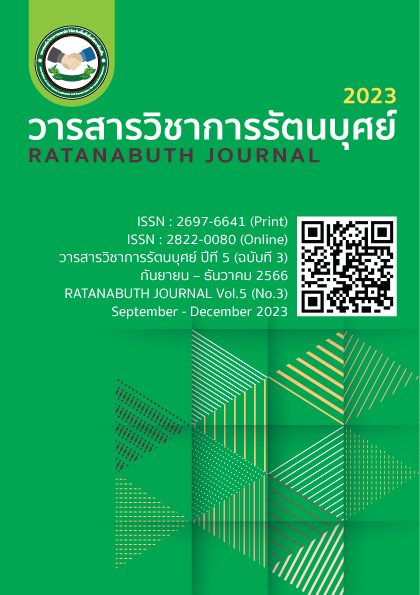Thai Political Scene and Political Ethics Thai Political Scene and Political Ethics
Main Article Content
Abstract
Political and administrative changes in Thai history from the Sukhothai period to the first Rattanakosin period have seen a concentration of political leadership within a group of high-ranking civil servants. Most people have had limited involvement in politics, resulting in civil servants and political elites benefiting unfairly through unethical practices, often neglecting the essential needs of the populace. Political parties have engaged in fierce competition to craft attractive political images and policies, aiming to capture the attention and trust of the people to gain political power. However, the current political landscape reflects a competitive dynamic in shaping policies and molding the image of political parties and politicians, akin to marketing political products. This is achieved through the utilization of communication techniques and political marketing strategies, often through populist policies aimed at engaging citizens. The discourse around politics has evolved from the traditional notion of “playing politics” to a newer concept of “political business”. Politicians present themselves in a friendly and service-oriented manner during campaigns, only to devalue their promises and credibility once in power. This shift highlights the importance of holding politicians accountable for their words and ensuring they fulfill their campaign pledges. Sadly, many politicians seem willing to betray public trust without regard for their social promises. Therefore, the regulation of political behavior must rely on impartial and sacred laws. Building moral courage and fostering strong political ethics among politicians is crucial. Encouraging political participation and enabling citizens from all sectors to scrutinize politicians through modern information technology is an alternative perspective for Thai society.
Article Details

This work is licensed under a Creative Commons Attribution-NonCommercial-NoDerivatives 4.0 International License.
References
บ้านจอมยุทธ์. (2566). ประชาชนกับบทบาททางการเมือง. (ออนไลน์). สืบค้นเมื่อ 1 สิงหาคม 2566 จาก: https://www.baanjomyut.com/library_4/politics/08_10.html.
ประพันธ์พงศ์ เวชชาชีวะ.(2563). กลุ่มผลประโยชน์หรือกลุ่มอิทธิพลกับพรรคการเมืองในสังคมประชาธิปไตย. สืบค้นเมื่อ 1 สิงหาคม 2566 จากhttps://www.naewna.com/politic/columnist/42638.
ปรัชญา เวสารัชช์. (2555). จริยธรรมสำหรับนักการเมืองและเจ้าหน้าที่รัฐ. วารสารผู้ตรวจการแผ่นดิน,1(4), 105-116.
ลิขิต ธีรเวคิน (2566). คุณสมบัติสำคัญของนักการเมืองที่ดี. กรุงเทพฯ : มหาวิทยาลัยธรรมศาสตร์.
วรเจตน์ ภีรัตน์. (2546). ความรู้เบื้องต้นเกี่ยวกับกฎหมายปกครอง : หลักกการพื้นฐานของกฎหมายปกครองและการกระทำทางปกครอง. กรุงเทพฯ: สำนักพิมพ์วิญญูชน.
วันเฉลิม จิตวิกรม.(2555). วิวัฒนาการการเมืองของไทย.สืบค้นเมื่อ 1 สิงหาคม 2566 จาก https://fayolo.wordpress.com.
สกลรัตน์ สร้างสมวงษ์. (2557). บทวิเคราะห์ระบบรัฐสภาและระบบการเลือกตั้งเพื่อปรับใช้กับระบบการเมืองของราชอาณาจักรไทย. วารสารจุลนิติ, 11(6), 47-48.
สานนท์ ด่านภักดี และคณะ. (2561). พรรคการเมืองและกลุ่มผลประโยชน์ทางการเมืองในประเทศไทย.วารสารวิทยาลัยสงฆ์นครลำปาง, 7(2), 377-392.
สำนักงานคณะกรรมการการเลือกตั้ง. (2555). ข้อมูลสถิติการเลือกตั้งสมาชิกสภาผู้แทนราษฎร พ.ศ. 2554. กรุงเทพฯ: รุ่งศิลป์การพิมพ์ (1977) จำกัด.
สำนักงานคณะกรรมการการเลือกตั้ง. (2563). ข้อมูลสถิติการเลือกตั้งสมาชิกสภาผู้แทนราษฎร พ.ศ. 2562. กรุงเทพฯ: สหายบล็อกและการพิมพ์.


